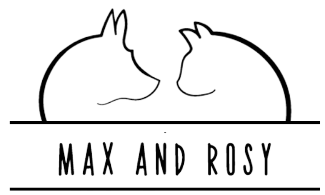
Top Seed-Rich Foods for Dogs: Pumpkin Seeds, Flax Seeds, Chia Seeds and More
When it comes to enhancing your dog’s diet with nutritious extras, seeds can be small but mighty additions. They are packed with essential nutrients like omega fatty acids, proteins, and fiber that can support various aspects of your dog's health—from improving coat condition to boosting digestion. However, not all seeds are safe for canine consumption. This blog will guide you through the best seeds to incorporate into your dog's diet and which ones to avoid.
Safe and Healthy Seeds for Dogs
1. Pumpkin Seeds
Pumpkin seeds are a superfood for dogs, rich in antioxidants, fatty acids, and anti-inflammatory properties. They are known to promote urinary health and can help prevent kidney stones and other bladder conditions. Grinding the seeds makes them easier for dogs to digest. Simply sprinkle the ground seeds over your dog's regular meal to help expel intestinal worms and enhance coat health.
2. Flax Seeds
Flax seeds are a good source of omega-3 fatty acids, which are great for your dog’s skin and coat. These seeds also contain lignans that help improve cardiovascular health and possess anti-cancer properties. Ground flaxseed is preferable as whole flaxseeds can pass through your dog's digestive system without being broken down, which means your dog won't get all the beneficial oils and nutrients.
3. Chia Seeds
Chia seeds are nutrient-dense and packed with omega-3 fatty acids, proteins, and fibers. They are excellent for supporting healthy skin, coat, and joints. Chia seeds can absorb many times their own weight in water, which helps prolong hydration and retain electrolytes in bodily fluids. You can add them directly to your dog’s food—no grinding needed.
4. Hemp Seeds
Rich in essential fatty acids, hemp seeds promote healthy skin and a shiny coat. They also provide a good balance of omega-6 and omega-3 fatty acids. These seeds can support a healthy immune system and have anti-inflammatory effects, which are beneficial for dogs with joint pain. Hemp seeds can be fed whole or ground, or as an oil.
5. Sunflower Seeds
Sunflower seeds (without the shell) are a great source of vitamin E, which is beneficial for your dog’s skin and coat health. They also contain essential fatty acids, antioxidants, and anti-inflammatory properties. It's best to offer them shelled and unsalted, preferably ground for easier digestion.
Seeds to Avoid Giving Your Dog
While many seeds are beneficial, some can be harmful to your dog:
1. Grapeseed
Grapes and their derivatives are toxic to dogs, and grapeseed is no exception. Consumption of grapeseed can lead to rapid kidney failure and other serious health issues.
2. Apple Seeds
Apple seeds contain cyanide, which is harmful to dogs as well as humans. While a small amount of apple seeds is not likely to be harmful due to the protective coating which prevents cyanide release unless the seed is chewed, it's best to avoid them to prevent any risk of poisoning.
3. Cherry Pits
Like apple seeds, cherry pits contain cyanide and pose a risk of intestinal blockage. The flesh of the fruit is safe for dogs, but the pits should always be removed.
4. Tomato Seeds
Tomato plants belong to the nightshade family and contain solanine, a substance that is toxic to dogs in large amounts. The seeds and the green parts of the tomato plant can be harmful, so it’s best to keep your dog away from them.
Conclusion
Introducing seeds into your dog's diet can be a great way to boost their overall health, but it's important to know which seeds are safe and which are not. Always start with small amounts to see how your dog reacts, and consult your veterinarian before making significant changes to their diet. Remember, when it comes to seeds, moderation is key, and preparation is crucial to ensure they are safe and digestible for your furry friend.
